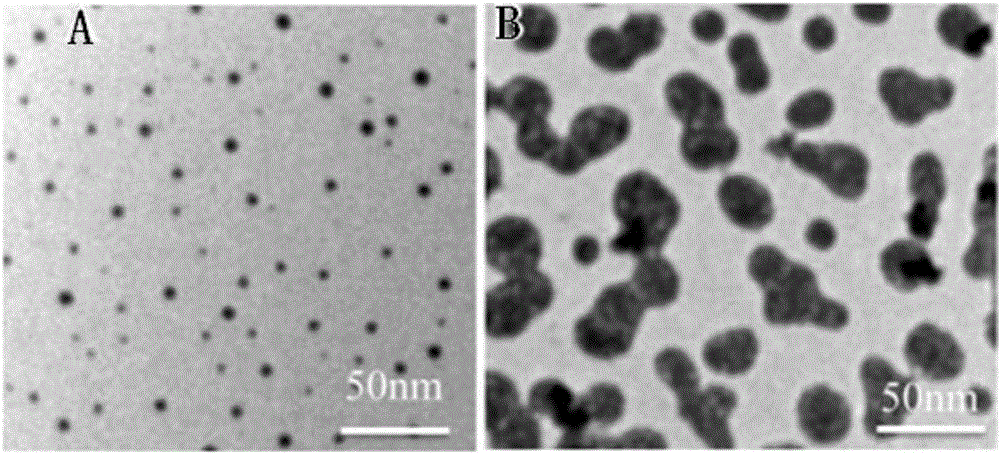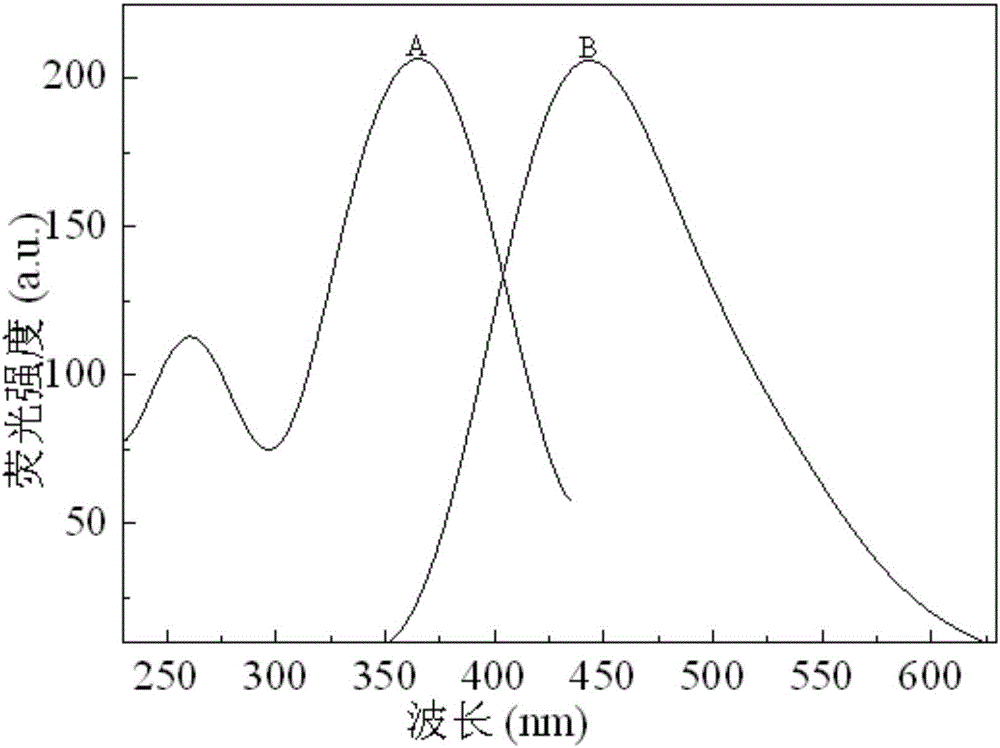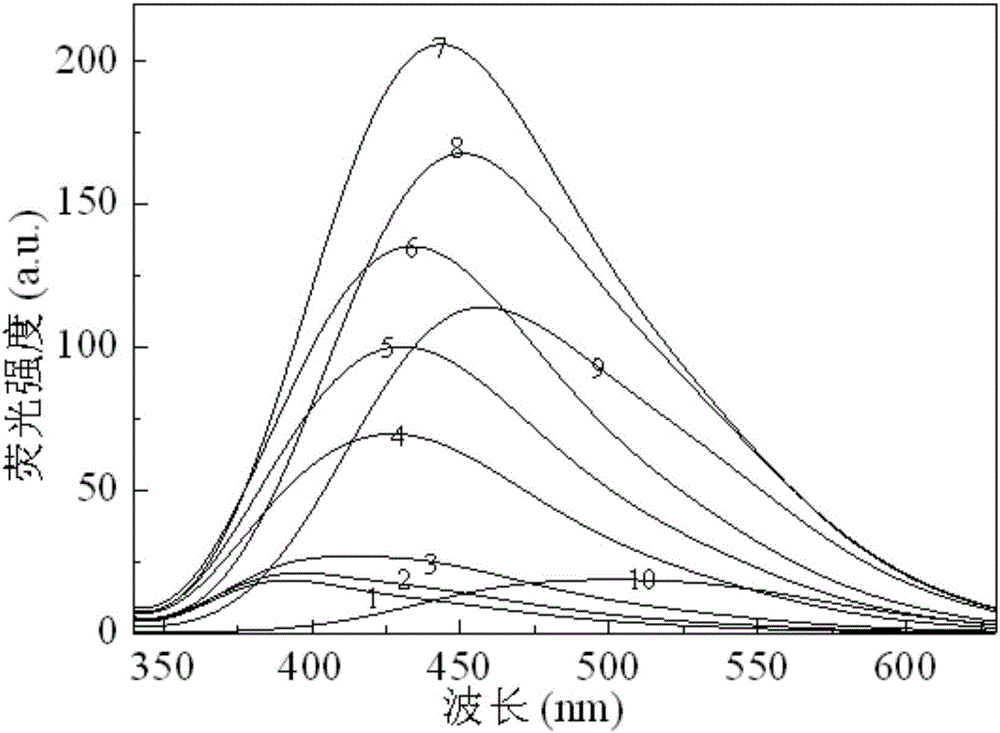Preparation method of garcinia mangostana-based carbon nanodot and application of carbon nanodot to detecting ferric ions as fluorescent probe
A technology of carbon nano-dots and iron ions, applied in the field of nano-fluorescence sensors, can solve the problem of long time-consuming preparation method
- Summary
- Abstract
- Description
- Claims
- Application Information
AI Technical Summary
Problems solved by technology
Method used
Image
Examples
specific Embodiment approach 1
[0028] Specific embodiment one: the preparation method of the carbon nano-dot based on mangosteen of the present embodiment, carry out according to the following steps:
[0029] (1) After the mangosteen is shelled, the mangosteen pulp is put into a crucible for roasting, and the moisture is removed to obtain a solid;
[0030] (2) Place the crucible on an electric heating furnace and heat until the color of the solid changes from white to yellow-brown, cool and pulverize to obtain a yellow-brown powder;
[0031] (3) Dissolving the yellow-brown powder with ultrapure water, magnetic stirring, ultrasonication, and centrifugation to extract the supernatant;
[0032] (4) Filtrate the supernatant with a 0.25-0.45 μM microporous membrane, and then dialyze with a dialysis bag, vacuum-dry and pulverize the obtained carbon nano-dot solution to obtain carbon nano-dot powder (MCDs).
specific Embodiment approach 2
[0033] Embodiment 2: This embodiment differs from Embodiment 1 in that the calcination temperature in step (1) is 100-120° C., and the calcination time is 10 min-30 min. Others are the same as in the first embodiment.
specific Embodiment approach 3
[0034] Embodiment 3: The difference between this embodiment and Embodiment 1 or 2 is that the particle size of the yellow-brown powder pulverized in step (2) is 2-5 nm. Others are the same as in the first or second embodiment.
PUM
| Property | Measurement | Unit |
|---|---|---|
| Particle size | aaaaa | aaaaa |
Abstract
Description
Claims
Application Information
 Login to View More
Login to View More - Generate Ideas
- Intellectual Property
- Life Sciences
- Materials
- Tech Scout
- Unparalleled Data Quality
- Higher Quality Content
- 60% Fewer Hallucinations
Browse by: Latest US Patents, China's latest patents, Technical Efficacy Thesaurus, Application Domain, Technology Topic, Popular Technical Reports.
© 2025 PatSnap. All rights reserved.Legal|Privacy policy|Modern Slavery Act Transparency Statement|Sitemap|About US| Contact US: help@patsnap.com



